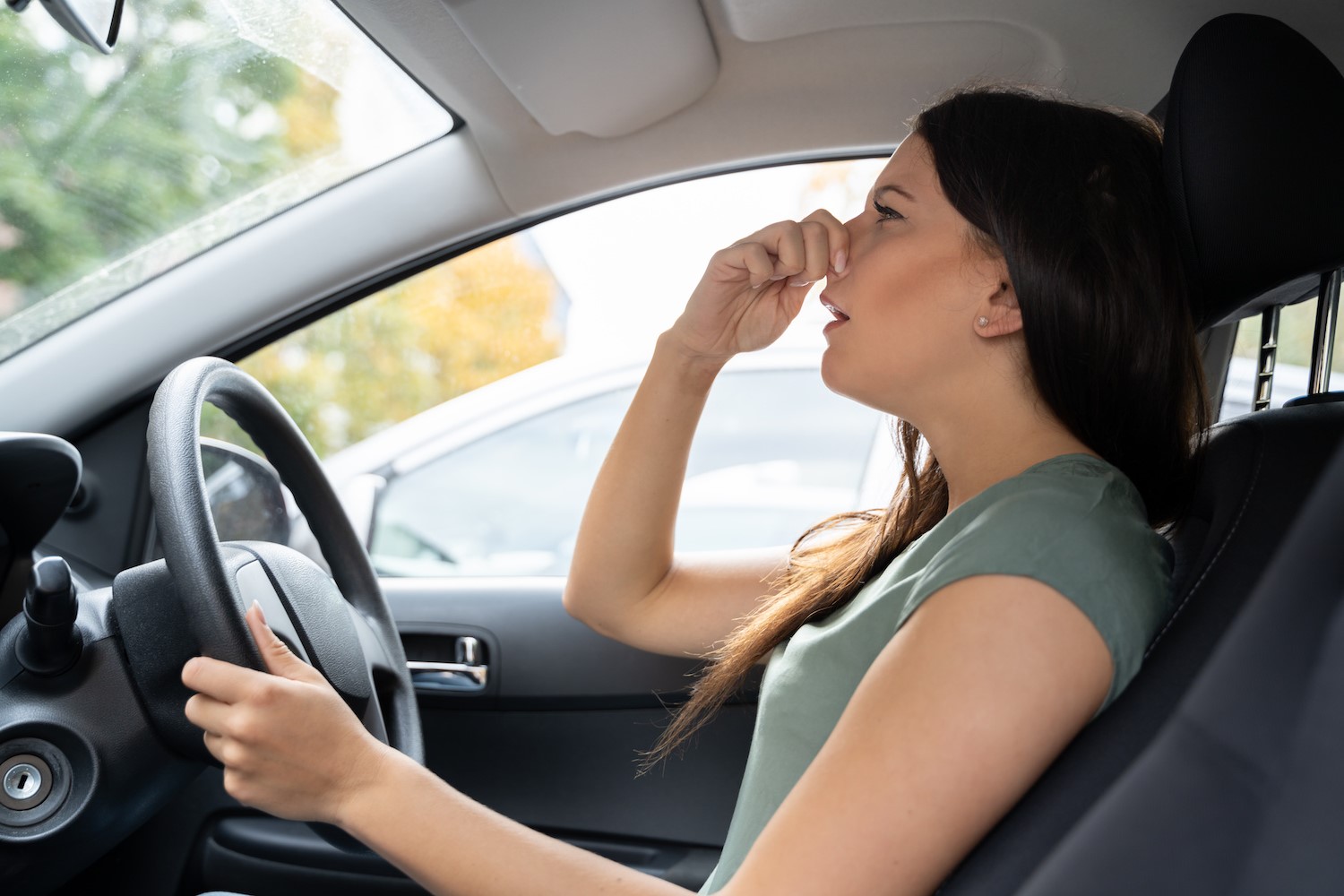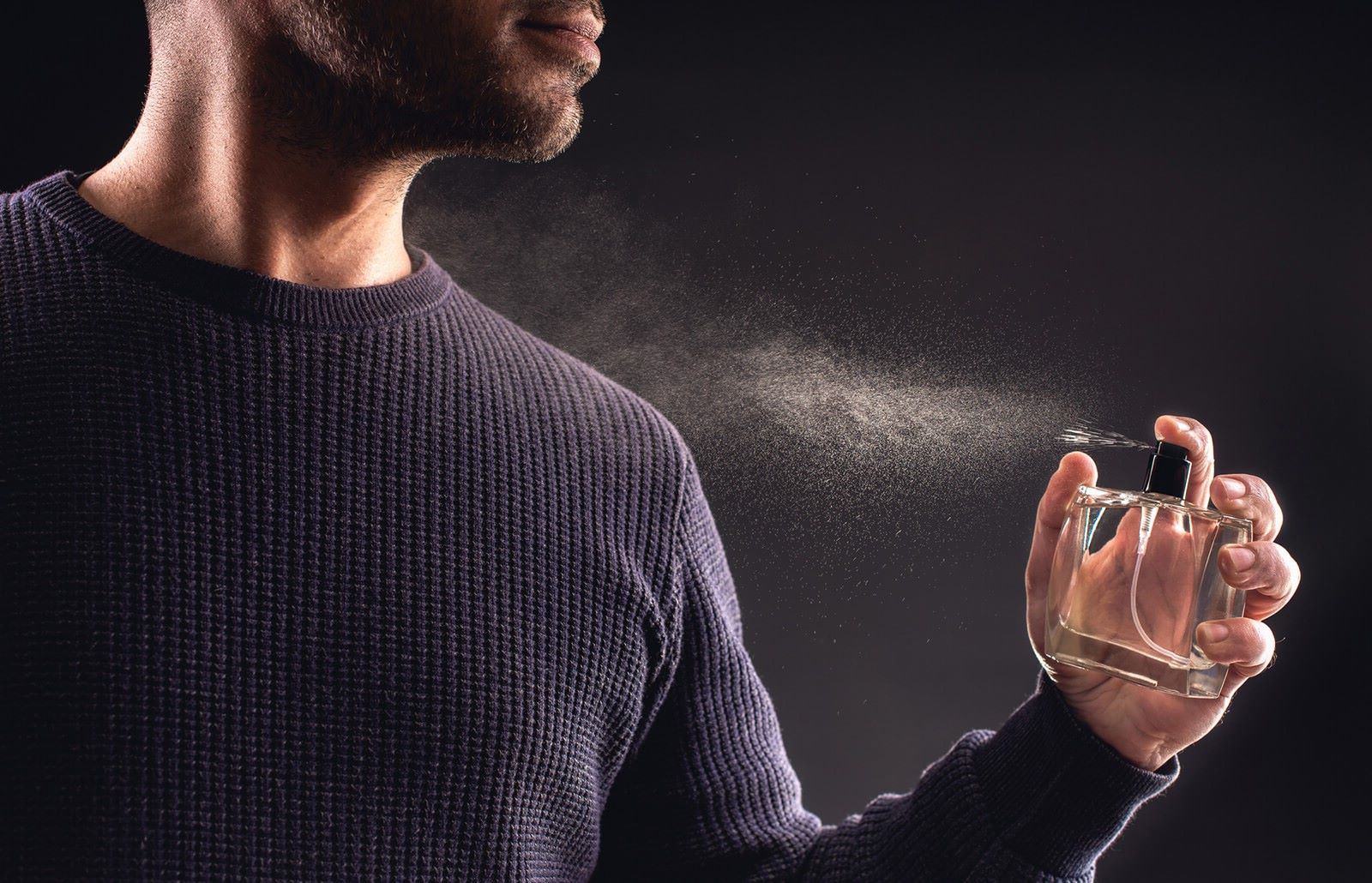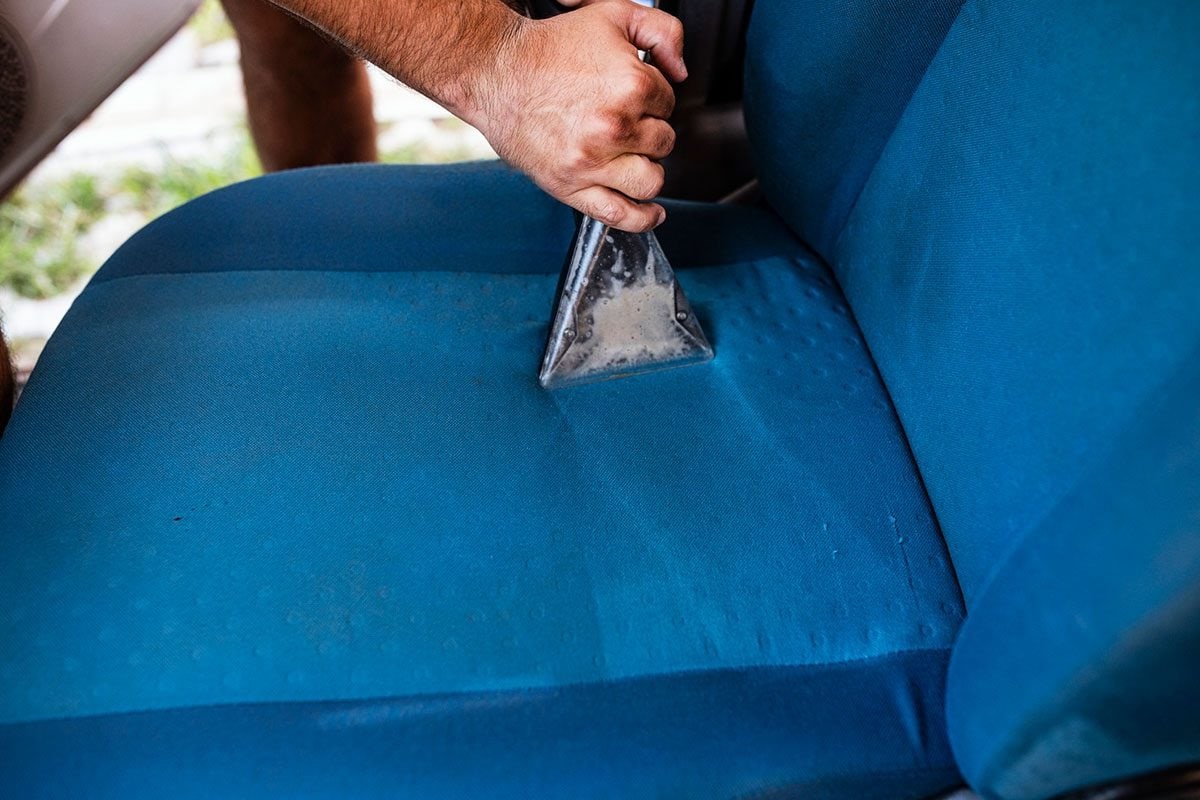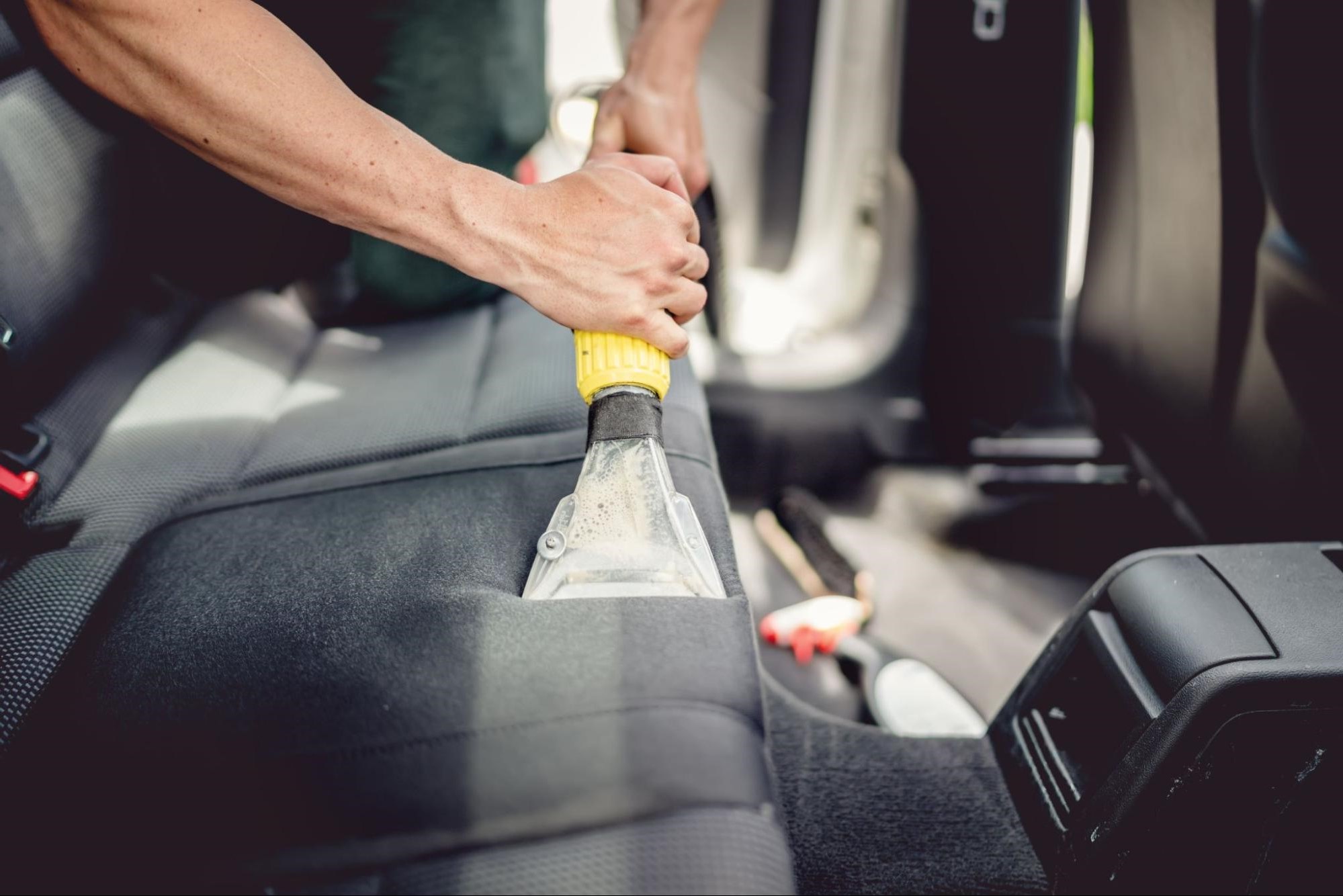Home>Automotive>How To Get Gas Smell Out Of Car


Automotive
How To Get Gas Smell Out Of Car
Published: February 26, 2024
Learn effective ways to remove gas smell from your car with our expert automotive tips. Say goodbye to unpleasant odors and enjoy a fresh-smelling vehicle.
(Many of the links in this article redirect to a specific reviewed product. Your purchase of these products through affiliate links helps to generate commission for Noodls.com, at no extra cost. Learn more)
Table of Contents
Introduction
Dealing with a lingering gas smell in your car can be both unpleasant and concerning. Whether it's due to a spill at the gas station or a leak in the fuel system, the odor can permeate the interior and create an uncomfortable driving experience. Fortunately, there are effective methods for eliminating this unwelcome scent and preventing it from recurring.
In this comprehensive guide, we will explore the various sources of gas odors in a car and provide practical solutions for removing the smell from both the interior and exterior of the vehicle. Additionally, we will discuss preventive measures to safeguard against future gas-related odors, ensuring a fresh and pleasant driving environment.
By understanding the root causes of gas smells and implementing targeted strategies, you can restore your car to a clean and odor-free state. Whether you're a seasoned car owner or a new driver, this guide will equip you with the knowledge and techniques needed to tackle gas odors with confidence.
Let's delve into the intricacies of gas odor removal and embark on a journey to reclaim the freshness of your beloved vehicle.
Read more: How To Get Smoke Smell Out Of Clothes
Understanding the source of the gas smell
The presence of a gas smell in a car can stem from various sources, each requiring distinct approaches for effective elimination. Understanding the potential origins of this odor is crucial in devising an appropriate remediation strategy.
-
Fuel Spillage: Accidental spills during refueling can lead to the permeation of gas odors within the car's interior. Even small quantities of spilled fuel can emit a potent smell, necessitating prompt action to prevent lingering odors.
-
Fuel System Leaks: A compromised fuel system, including damaged fuel lines, a faulty gas cap, or a malfunctioning fuel injector, can result in the release of gasoline vapors into the car's cabin. These leaks not only pose safety hazards but also contribute to persistent gas odors.
-
Evaporative Emissions: Modern vehicles are equipped with an evaporative emission control system designed to contain fuel vapors and prevent their release into the atmosphere. However, malfunctions in this system can cause gas odors to accumulate inside the car.
-
Interior Contamination: In some cases, the gas smell may be attributed to interior components that have absorbed fuel, such as carpets, upholstery, or floor mats. These materials can retain the odor, necessitating targeted deodorization methods.
By identifying the specific source of the gas smell, whether it be a spill, a leak, or interior contamination, car owners can tailor their remediation efforts to effectively address the underlying issue. This understanding serves as the foundation for implementing targeted odor removal techniques, ultimately restoring a fresh and pleasant environment within the vehicle.
Removing gas smell from the interior of the car
When addressing a gas smell within the interior of a car, it is essential to employ targeted strategies to effectively eliminate the odor and restore a fresh driving environment. The following methods are tailored to address various sources of gas odors and can be instrumental in achieving successful deodorization.
1. Ventilation
Initiating thorough ventilation is a fundamental step in dissipating gas odors from the car's interior. Roll down the windows and allow fresh air to circulate throughout the cabin. This process facilitates the dispersion of lingering gas vapors and is particularly effective after fuel spillage incidents or when dealing with mild odors.
2. Interior Cleaning
Conduct a comprehensive cleaning of the car's interior, focusing on surfaces that may have come into contact with gasoline. Use a mild detergent or specialized interior cleaner to scrub affected areas, such as the floor mats, upholstery, and carpeting. Pay particular attention to any visible signs of fuel residue, and ensure thorough rinsing and drying to eliminate the odor at its source.
Read more: How To Get Diesel Smell Out Of Clothes
3. Odor Absorbing Agents
Utilize odor-absorbing agents to neutralize gas odors within the car. Baking soda, activated charcoal, or commercial odor absorbers can be strategically placed within the interior to absorb and eliminate lingering odors. These agents work by trapping and neutralizing the volatile compounds responsible for the gas smell, gradually restoring a fresh and odor-free environment.
4. Professional Detailing
Consider enlisting the services of a professional auto detailer for a comprehensive interior cleaning. Professional detailing involves specialized equipment and techniques to deep clean and deodorize the car's interior, effectively targeting stubborn gas odors. This approach is particularly beneficial for severe or persistent gas smells that require expert attention.
5. Ozone Treatment
Ozone treatment, performed by professionals, can effectively eradicate persistent gas odors from the car's interior. This method involves the use of ozone-generating machines, which release ozone gas into the vehicle, neutralizing odors at a molecular level. Ozone treatment is a powerful deodorization technique that can effectively eliminate even deeply embedded gas odors.
By implementing these targeted methods, car owners can effectively remove gas smells from the interior of their vehicles, restoring a clean and pleasant driving environment. It is important to tailor the approach based on the severity and source of the gas odor, ensuring comprehensive deodorization and a revitalized interior ambiance.
Removing gas smell from the exterior of the car
Addressing gas odors emanating from the exterior of a car requires targeted techniques to effectively eliminate the pervasive smell and restore a fresh, pleasant ambiance. Whether the odor is a result of fuel spillage, leaks, or exterior contamination, the following methods can be instrumental in achieving successful deodorization.
-
Exterior Washing: Commence the deodorization process by thoroughly washing the exterior of the car. Use a mild detergent or specialized automotive cleaner to scrub the surfaces that may have come into contact with gasoline. Pay particular attention to areas near the fuel filler cap, fuel door, and any regions where fuel spillage may have occurred. Rinse the vehicle meticulously to remove any residual fuel traces, effectively reducing the external gas odor.
-
Undercarriage Cleaning: The undercarriage of the car is susceptible to fuel residue accumulation, particularly in the case of leaks or spills. Utilize a high-pressure washer or specialized undercarriage cleaning equipment to remove any fuel deposits from the underside of the vehicle. This targeted cleaning approach can effectively eliminate external gas odors and prevent further contamination.
-
Fuel System Inspection and Repair: If the gas smell persists from the exterior of the car, it is imperative to inspect the fuel system for potential leaks or malfunctions. Engage the services of a qualified automotive technician to conduct a thorough assessment of the fuel lines, fuel tank, and associated components. Addressing any leaks or system deficiencies is essential in preventing external gas odors from permeating the vehicle.
-
Seal and Protect: After cleaning the exterior and addressing any fuel system issues, consider applying a protective sealant to the surfaces that may have been exposed to gasoline. This sealant serves as a barrier, preventing future fuel absorption and minimizing the potential for external gas odors. Additionally, a specialized automotive wax can be applied to further protect the exterior and enhance the overall cleanliness of the vehicle.
-
Professional Detailing: For persistent or severe external gas odors, enlisting the expertise of a professional auto detailer is advisable. Professional detailing services encompass specialized cleaning and deodorization techniques tailored to the exterior of the car. This comprehensive approach can effectively eliminate lingering gas smells and restore the vehicle's exterior to a pristine condition.
By implementing these targeted methods, car owners can effectively remove gas smells from the exterior of their vehicles, ensuring a clean and odor-free exterior environment. Tailoring the approach based on the severity and source of the gas odor is essential in achieving comprehensive deodorization and revitalizing the exterior ambiance of the car.
Read more: How To Get Pee Smell Out Of Couch
Preventing future gas smells in the car
Safeguarding your car against potential gas odors is essential for maintaining a fresh and pleasant driving environment. By implementing proactive measures and adhering to best practices, car owners can effectively prevent the recurrence of gas smells within their vehicles. The following strategies are instrumental in mitigating the risk of future gas odors and ensuring a clean and odor-free interior and exterior.
1. Fueling Practices
Adopting careful fueling practices is paramount in preventing gas odors in the car. When refueling, exercise caution to avoid spillage by positioning the fuel nozzle securely within the fuel filler neck. Refrain from overfilling the tank, as excess fuel can lead to spillage and the permeation of gas odors within the vehicle. Additionally, promptly addressing any fuel spills and utilizing absorbent materials to contain and clean up the spillage can prevent lingering odors.
2. Routine Maintenance
Regular maintenance of the vehicle's fuel system is crucial in preventing potential leaks and the associated gas odors. Schedule periodic inspections of the fuel lines, fuel tank, and associated components to detect and address any signs of wear, corrosion, or damage. Promptly addressing fuel system issues, such as deteriorated seals or damaged components, can mitigate the risk of gas leaks and the subsequent permeation of odors within the car.
3. Interior Protection
Implementing protective measures within the car's interior can effectively prevent the absorption of fuel odors by interior components. Consider utilizing durable and easy-to-clean floor mats and upholstery materials that are resistant to fuel absorption. In the event of a fuel spill, promptly remove and clean affected interior components to prevent the lingering of gas odors. Additionally, storing fuel containers or related equipment in sealed and secure compartments can minimize the risk of interior contamination and odors.
Read more: How To Get Musty Smell Out Of Carpet
4. Exterior Maintenance
Maintaining the cleanliness and integrity of the car's exterior surfaces is instrumental in preventing external gas odors. Regularly wash and inspect the exterior, paying particular attention to areas near the fuel filler cap and fuel door. Promptly address any fuel spills or residue on the exterior surfaces to prevent the permeation of gas odors. Applying protective sealants and waxes to the exterior can further safeguard against fuel absorption and minimize the risk of external odors.
5. Evaporative Emission System Maintenance
Ensuring the proper functioning of the vehicle's evaporative emission control system is essential in containing fuel vapors and preventing their release into the car's interior. Adhere to the manufacturer's recommended maintenance schedule for the evaporative emission system, including inspections and servicing of components such as the charcoal canister, purge valve, and fuel cap. Addressing any malfunctions or deficiencies in this system can effectively mitigate the risk of gas odors within the vehicle.
By incorporating these preventive measures into your car care routine, you can effectively minimize the risk of gas odors and maintain a fresh and pleasant driving environment. Proactive fueling practices, routine maintenance, interior and exterior protection, and evaporative emission system upkeep collectively contribute to preventing future gas smells in the car, ensuring a clean and odor-free driving experience for you and your passengers.












